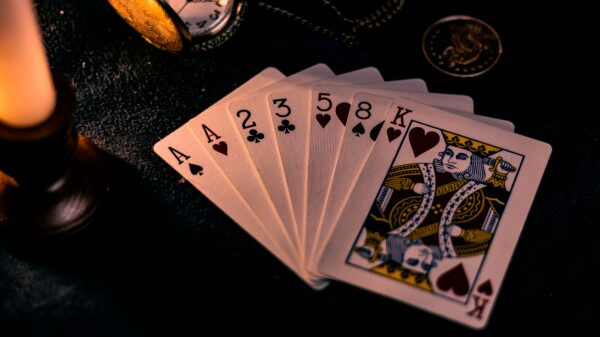
Some people crumble at the sight of a roulette wheel. Others treat it like a math exam they never studied for. But the truth is, winning in a casino isn’t about luck alone. It’s about control. Knowing when to call, when to cut your losses, and when to let the chips fall where they may. The best gamblers aren’t adrenaline junkies; they’re patient tacticians hiding behind a cool grin and a glass of something expensive.
And if you look at British TV long enough, you’ll find that the best poker faces don’t belong to professional gamblers at all. They belong to characters who understand people. The hustlers, detectives, and smooth talkers who could read a tell from across the room.
A good casino player doesn’t need magic or machines, just focus and restraint. That’s why the kind of person who thrives at a poker table would be the same kind who survives the chaos of a pub brawl or a dodgy deal gone wrong. You’d find them holding court in a corner booth, chips in hand, watching everyone else lose their heads. A place like Wazamba, with its mix of flashy bonuses and quick promotions, might draw them in for the show, but they’d stay for the challenge.
Thomas Shelby (Peaky Blinders)
Tommy Shelby would treat the casino like a boardroom. He’d light a cigarette, take in the room, and work out who was bluffing before the first card was even dealt. The thing about Tommy is that he doesn’t gamble for fun. Every move is calculated, every risk tied to reward. He’d sit at the blackjack table and turn it into a study of psychology, reading players like ledgers.
His biggest strength is emotional detachment. He knows when to walk away, even from victory. That sort of discipline separates winners from wrecks. In a casino, emotion is the enemy. The moment you start chasing a loss, you’ve already lost twice. Shelby would never fall into that trap.
Sherlock Holmes (Sherlock)
Sherlock’s brilliance lies in noticing the invisible. He sees the blink you didn’t mean, the tap of a finger that betrays a bluff. Give him a deck of cards, and he’d have you pegged before the dealer finishes shuffling. For him, a casino wouldn’t be entertainment but an experiment in human behavior.
He’d treat probability like an art form, leaning on observation rather than impulse. He’d win more from discipline than daring, which is the secret most gamblers miss. If Sherlock ever found himself short on rent, he wouldn’t need to take on cases; a few quiet hours at a poker table would cover his bills nicely.
Patsy Stone (Absolutely Fabulous)
At first glance, Patsy might seem like the last person you’d trust with a bankroll. She’d strut into the casino in heels high enough to count as a weapon, champagne in hand, laughing too loudly. But don’t be fooled. Beneath the chaos is a woman who understands survival better than most.
Patsy thrives on confidence. She bluffs with her whole being. You’d fold before you even looked at your cards. She’s impulsive but never uncertain, which gives her a dangerous edge. Luck tends to favor the bold, and Patsy’s never lacked audacity. You wouldn’t want to play against her after midnight. She’d own the table and half the bar by closing time.
Malcolm Tucker (The Thick of It)
If the casino floor had a volume setting, Tucker would crank it past ten. He’s all fire and fury, but behind the tirades is a strategist who knows how to push pressure points. He’d treat poker like politics, testing every weakness until his opponents collapsed.
What makes Tucker dangerous isn’t his anger, it’s his control. He knows when to release it, when to hold it back. That kind of mastery over impulse is what separates champions from chancers. The man could lose a hand and make you feel like you’d just insulted the Queen. No dealer alive would risk telling him to calm down.
Villanelle (Killing Eve)
Villanelle would treat gambling as performance art. She’d walk into the casino wearing something that cost more than your car, order a martini, and play like she already owned the place. Her unpredictability would terrify the table. She’d bluff for the thrill, win for the power, and leave before anyone realized she’d taken them apart.
Her brilliance lies in her ability to read emotion without empathy. She’d know exactly when someone’s pulse gave them away. She’d never chase a loss, never sweat a bad hand. That cold detachment is the difference between reckless and ruthless.
Playing the Game Right
What all these characters share is control. Not charm, not intelligence, but the ability to pause when everyone else is pushing forward. Casinos reward that kind of temperament. The critical mind wins out over the reckless one every time. The trick isn’t to predict the future but to manage the present.
Whether you’re flipping a coin or weighing your odds, the same rule applies: know yourself. Every decision comes down to patience, focus, and knowing when to stop. The ones who last don’t rely on luck; they rely on logic.
